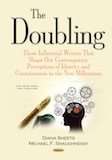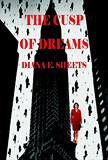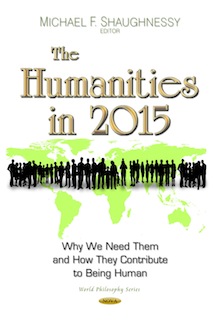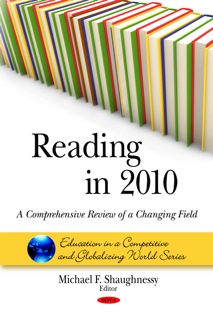Ian McEwan's Incredibly Shrinking Member
Copyright © 2008 by Diana E. Sheets
In November of 2006, journalist Julia Langdon accused Ian McEwan of unethical “borrowing” from the autobiography No Time for Romance penned by British romance novelist Lucilla Andrews. McEwan’s novel Atonement (2001), primed for the market and nominated for the Booker Prize, was later produced as a film (2007) in the lush neo-imperial style reminiscent of a Merchant Ivory production. The story’s grim World War II hospital scenes relied on Andrews’ descriptions of working as a Nightingale nurse in the wards of St. Thomas’ Hospital (“Revealed: how Booker prize writer copied work of the queen of the hospital romance, Critical Quarterly: Summer 2007, Vol. 49, Issue 2, 41-45, a reprint of the November 26, 2006 article by Langdon that appeared in The Mail on Sunday).
In the hoopla that followed Langdon’s accusation, literary celebrities—Thomas Pynchon, Margaret Atwood, Martin Amis, Zadie Smith, John Updike, and Kazuo Ishiguro—rushed to the defense of Ian McEwan and the inherent right of an author to rely on historical sources as a foundation for creating a fictional story (Sarah Lyall, “Novelists Defend One of Their Own Against a Plagiarism Charge in Britain,” The New York Times, The Arts/Cultural Desk: 1, col. 1). But their collective cri de coeur failed to acknowledge the hidden truth underlying the substance of the accusation: in order to become published, if not celebrated today, literary writers have increasingly feminized and romanticized their fictional offerings and no contemporary British male writer more so than Ian McEwan.
The consequence of McEwan’s diminished testosterone, of his ever shrinking member, are story plots that illuminate the interior thoughts, motivations, and actions of characters myopically pursuing romance or a paradigm of domesticated bliss in which children are celebrated. He then upends these tranquil circumstances to reveal the psychological turmoil caused when these ideals are shattered or perilously threatened. This dynamic has paved the way to his financial and critical success. Given the pink-tulle foundations of literary fiction and its insistence on rejecting the disturbances of the real world in favor of the sentimental comforts of a child-centric universe (http://www.literarygulag.com/blog/show/5, http://www.literarygulag.com/blog/show/6), no male author better illuminates the diminished stature of literary fiction with its loss of testosterone and its elevated levels of estrogen than British author Ian McEwan. For this reason we will examine the plots of several of his novels in order to ascertain their underlying import and what they suggest about the dismal circumstances of literary fiction today.
McEwan’s award-winning collection of stories, First Love, Last Rites (1975), beguile the reader with tales of incest, child abuse, and domestic perversions that collectively comprise the tortured domain of the female imagination. A second volume followed, as well as his first novel, The Cement Garden (1978). This suspense thriller is a lurid domestic tale of the social pathology of children bereft of parental influence. It is a crime story in which there is no murder, where incestuous desire simmers within the confines of house and garden. Conveniently, the father dies of a heart attack while paving the back garden in cement. Shortly thereafter, the mother, an invalid, also dies. In hopes of preventing the breakup of their family, three of the four children bury their mother in concrete in the basement. The family continues to live their anything-but-normal lives absent adult supervision until, at the conclusion of the story, the authorities arrive.
If McEwan’s intent in writing The Cement Garden is to create an interiorized universe reminiscent of William Golding’s Lord of the Flies (Brian Finney, English Fiction Since 1984: Narrating a Nation, Palgrave Macmillan, 2006, 96.), it falls short of the mark because hyper-perverse domesticity cannot hope to compete with the Darwinian laws of survival.
According to McEwan, it was only beginning with his third novel, The Child in Time (1987), that the “political, moral, social, comic, and other possibilities” founded on external events begin interacting with the interior thoughts and actions of the characters. “I’ve wanted to locate things specifically and also to merge invented worlds with real worlds. That’s become a very important part of my project. Somehow, the historically real, the actual, the factual seems to enliven the invented.” (Dave Weich, “Ian McEwan, Reinventing Himself Still,” April 1, 2004, http://www.powells.com/authors/mcewan.html).
Nevertheless, The Child in Time is a domesticated realm far, far from the reality of day-to-day lived experience of ordinary Britons, although it taps into some of their greatest fears. The protagonist, Stephen Lewis, is a noted author of children’s stories. He loses his daughter, age three, when she is kidnapped while they wait in line at a local supermarket. Both he and his wife, Julie, struggle with the devastating impact the loss of their child has on their relationship, never discovering her whereabouts or if she is alive or dead. An infantilized universe permeates The Child in Time. Stephen’s former publisher, Charles, goes mad and eventually commits suicide, unable to reconcile his inner child with the adult he is presumed to be. Then, there is the putative child, subject of the Official Commission on Child Care in which Stephen participates through his involvement in one of its subcommittees (Grove Koger’s book review, “The Child in Time,” Library Journal, 1987, September 1, 1987, Vol. 112, Issue 14, 200). The novel concludes with a burst of embryonic fluid. Julie gives birth to another child as Stephen assists with the delivery. The reader is thereby reassured of the couple’s spiritual, emotional, and physical reunion, a consequence of the indefatigable bonds of family.
McEwan’s sixth novel, Enduring Love (1997), is a tale of psychological suspense mediated by feminized dread. The plot is simple enough. A young couple, Joe and Clarissa, are reunited after a six week separation. They are picnicking in the idyllic English countryside near
The opening scene, primed for the film that follows, presents the drama of an innocent child in harm’s way. Adults try to rescue him and, in the process, a man dies. Thus, the readers grapple with the knowledge that both the rescue attempt and the doctor’s death were to no avail. They come to understand the limits of altruism. They observe the finite boundaries that impede efforts to rescue another human being. Finally, there is the realization that the difficulties plaguing Joe and Clarissa need not have happened if only Joe had not intervened.
Nonetheless, it is the unintended consequences following the balloon incident that constitute the crux of our story. One of the attempted rescuers is Jed, a fundamentalist Christian. A meaningful look from Joe prompts Jed, who has de Clerambault’s syndrome, to mistakenly believe Joe is in love with him. Rebuffed on both religious and emotional fronts, Joe hires two men to murder Joe. At a restaurant where Joe, Clarissa, and her father dine, one of the contract killers mistakenly shoots the wrong man and prepares to kill him. Jed intervenes to deflect the second bullet from further injuring the unintended victim, thereby foiling the assassination and prompting the would-be killers to flee the scene. Learning of Jed’s actions, the detective, naturally, doubts Joe’s claim that Jed meant to kill him. Clarissa, meanwhile, questions Joe’s accusation that Jed is stalking him and begins sleeping in the “children’s room,”—though, in fact, they are childless. The climax occurs when Jed goes to the couple’s apartment and holds Clarissa at knife point. Joe, having been notified by his wife that she is being held hostage, rushes home after having purchased an illegal handgun. After entering the house, Joe shoots Jed in the arm when he threatens to kill himself. The novel, with this improbable plot, ends lamely. There are no charges made against Joe who, after all, was only trying to save Jed. Joe and Clarissa reconcile and adopt a child. Jed remains uncured and institutionalized.
If McEwan’s dark early subject matter earned him the nickname “Ian Macabre” and cost him a few pink-tulle readers, Enduring Love marks a shift away from horror toward romantic suspense that, depending on your readerly predilections, is associated with either Jane Austin or Lucilla Andrews. Of all McEwan’s novels, none is as drenched in estrogen as Atonement (2001). Not surprisingly, this book has been avidly read and praised by women around the world. The novel is historical romance-cum-literary-melodrama conceived in full panoramic splendor in anticipation for the film that would shortly follow. It is meant to be read ironically with respect to and against the grain of Jane Austin’s Northanger Abbey and Mansfield Park, A.S. Byatt’s Possession, and John Fowles’s The French Lieutenant’s Woman, and Virginia Woolf’s Between the Acts and To the Lighthouse (Pilar Hidalgo, “Memory and Storytelling in Ian McEwan’s ‘Atonement,’” Critique, Vol. 46, No. 2, Winter 2005, 82-91; James Wood, “The Trick of Truth,” The New Republic, March 25, 2002, Vol. 226, Issue 11, 28-34; John Updike, “Flesh on Flesh; a semi-Austenesque novel from Ian McEwan,” The New Yorker, March 4, 2002, 80; Mel Gussow, “A Cool Writer Warms Up—Ian McEwan’s Latest Novel Charts an Emotional Journey,” The New York Times, April 23, 2002, The Arts/Cultural Desk, 1, col. 1; English Fiction Since 1984, 94-5).
As McEwan acknowledged in an interview with Mel Gussow, he discovered the emotional power of Atonement when describing its conclusion to his wife, Annalena McAfee. “I told her the last chapter and to my amazement she burst into tears. Ah, well, I thought, this is correct. I hadn’t seen it in quite so emotional terms.” When he finished the novel two years later, the conclusion was nearly identical to the one he had originally described (1).
What, then, is the plot for Atonement? It begins in 1935, those seemingly idyllic years prior to WWII at the country estate of a family whose grandfather, descended from the merchant class, made his fortune patenting hardware implements. The estate, somber and earnest and ungainly, suggests the parvenu status of its inhabitants. Atonement is the story of one family. It explores the tragic fate of two sisters and the housekeeper’s college-educated son. Young Briony—aged 13—having misconstrued the relationship between her elder sister, Cecilia, and Robbie is both jealous of the bond between the couple and repulsed by the rank and bestial undercurrents of manliness. Briony is witness to the amorous passions of the young lovers and misconstrues their primal urges. Witness to the rape of her teenage cousin, she wrongly accuses Robbie. He is convicted of the crime and sent to jail. He enlists as a private in the British Army Expeditionary Force in order to obtain an early release. He displays valor and courage in battle only to die shortly before he is to be evacuated from the beaches of
Cecilia is incensed by her family’s role in the conviction and betrayal of her lover, Robbie. She spurns
McEwan’s Atonement, as characteristic of a melodrama, presents one sensual scene between the lovers that ignites the emotional pain that follows. There are modest displacements of chronological time that feature shifting points of view. McEwan offers the possibility of alternative conclusions—his and Briony’s. Thus, McEwan, the author, provides the reader with a “truthful” tragic ending presented by his Atonement in contrast to Briony’s “fictional” and emotionally satisfying conclusion in which the lovers are joyously reunited. But this whiff of postmodern relativism that offers the reader alternative endings—one supplied by the author, the other by his narrator—should be recognized as a disingenuous ploy to disguise a pedestrian actuality: Atonement is Harlequin hokum masquerading as highbrow literary fare.
There are, of course, other relatively recent fictions written by McEwan.
Which brings us to Saturday (2005). Written in response to 9/11, it is the story of one day in the life of Henry Perowne, a decent, law-abiding London Neurosurgeon set against the backdrop of a mass gathering by protesters opposing the deployment of British troops to fight in
McEwan’s feminized perspective does not permit him to acknowledge the obvious: the terrorists had imagined the fear and horror of their victims. Indeed, they welcomed it. Terrorism is an act of war. Its purpose is to inflict harm and to force its victims to capitulate. Terrorism allows its perpetrators to dispel temporarily their own personal misfortune, their feelings of shame, fear, despair, and inadequacy. By inflicting harm on an external enemy, the attackers and their host countries deflect criticism and quell efforts to reform their society. What McEwan surely knows and refrains from stating to his feminized audience is that no amount of empathy and understanding will impede terrorism. What is required is vigilance and determination to protect our social, economic, and cultural institutions against harm. But a feminized culture is weak. It is reluctant to fight. It has forgotten how critically important force and vigilance are to ensuring liberty, justice, and freedom. A feminized culture is a decadent culture that is no longer willing to pursue its ideals because this necessitates sacrifice and courage. Nowhere is this decadence more evident than in literary fiction. It is for this reason that we have examined the fiction of Ian McEwan.
But what is the plot of Saturday? As John Banville noted, it lurches from banality to bathos. No surprise, then, that we begin with the by now tired formula of tracing the fortunes of a protagonist over the course of a single day in the manner of Virginia Woolf’s Mrs. Dalloway (“A Day in the Life,” The New York Review of Books,
The most amusing, if improbable, scene occurs when our protagonist, Henry, a neurosurgeon, talks his way out of a violent encounter with menacing Baxter whose BMW has scrapped the doctor’s Mercedes. The thug and his henchmen are dissuaded from harming Henry when the doctor notices and comments on Baxter’s symptoms of Huntington’s disease. From there the plot slides into formulaic pabulum. Baxter and his accomplice invade Henry’s home. Grandfather, John Grammaticus, has his nose broken. Henry’s wife, Rosalind, nearly has her throat slit. His daughter, Daisy, narrowly evades rape when it is discovered that she is pregnant. Nigel, the accomplice, flees. Henry’s adolescent son, Theo, comes to his father’s aid. Together, they overcome Baxter, throwing him down the stairs. He lives. Henry prevails on his family not to prosecute—a feeble effort on McEwan’s part to have his protagonist behave magnanimously, if less than realistically—with the knowledge that Baxter’s neurological condition is grossly debilitating.
The most important story of all—civil society in the aftermath of 9/11—remains largely unexamined in Saturday. A plane flies overhead. We the readers feel the tension of “What if.” Meanwhile there are the protesters demonstrating their opposition to the deployment of British troops to
What may we conclude? In an era of diminished fiction where writers, agents, editors, publishers, and critics have acceded to the demands of a marketplace that insists on “dumbing down” content to woo a solipsistic and romance-obsessed feminized audience hostile to stories depicting uncomfortable truths about the world, Ian McEwan’s stories are pump primed for his market. Here is a man who has spent a lifetime seeking the answer to Freud’s fateful question: What do Women Want? The answer is disquieting and can be evinced by assessing McEwan’s fiction. Literary, but not too literary. Intelligent, but not excessively so. Suspenseful, but not harrowing, at least not in any way that might alienate his readers. A little sinister, a little dark, but not excessively so. Always with an eye on the domicile, that feminine quarter we refer to as home.
Here is an author whose best novels, Enduring Love and Atonement, have the whiff of a Harlequin romance, turned upside down and inside out, but never, ever, displaced. His stories are intricately plotted. McEwan’s readers need never fear for excessive literary heft or too much interior thought or an overwhelming dose of postmodern gamesmanship. His stories provide enough psychological insight into the motivations of the characters to gratify the emotions of his needy audience. Many of his novels double as thrillers or novels of suspense, tapping into the everyday passions and fears women harbor about the fragility of their world, their children, their love lives, and, above all, the precariousness of the modern-day family. But never do these stories impinge too closely on those terrifying events that are the foundation of the real. For that would decrease readership. For as his character Briony suggests in Atonement, Why should fiction closely parallel the unhappy circumstances of the world? What purpose would be served by presenting a tragic ending? How might the reader take heart from such a bleak story? Far better, she argues, to supply a romantic conclusion. Better for the reader, no doubt, as well as the billfold of the author.
But now I can no longer think what purpose would be served if, say, I tried to persuade my reader, by direct or indirect means, that Robbie Turner died of septicemia at Bray Dunes on 1 June 1940, or that Cecilia was killed in September of the same year by the bomb that destroyed Balham underground station. That I never saw them that year. That my walk across
Herein lies the explanation behind Mr. McEwan’s shrunken member. A loss—perhaps—though, apparently, not a devastating outcome as far as the author or his audience is concerned. For the feminization of Ian McEwan’s fiction has brought him literary acclaim, a bounty of material riches, and the film adaptations to seven of his stories. Who would have thought that transgendered narratives would prove so lucrative? Ah, but these are the banal stories that are celebrated in our times, and no man writes better for his feminized readership than our Mr. McEwan.









